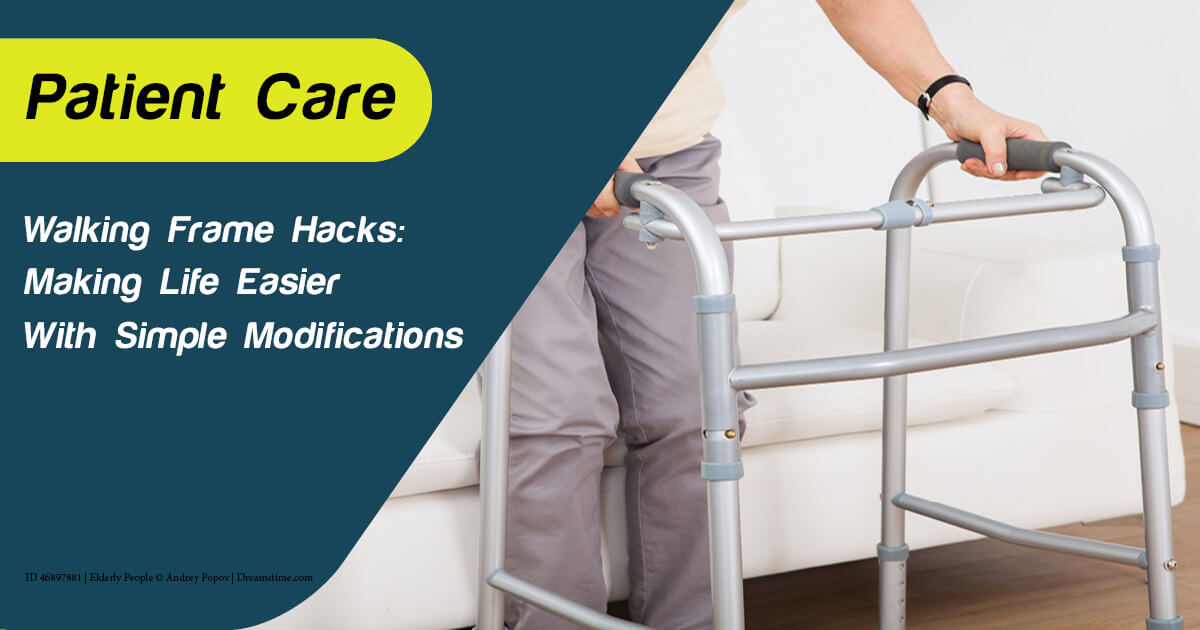
Share
As the need for specialised care for Older Australians in aged care facilities grows, it becomes increasingly important to understand the benefits of physiotherapy in meeting their unique needs. Physiotherapy plays a vital role in enhancing the well-being of older residents, addressing the physical challenges that come with aging and improving their overall quality of life.
Physiotherapy in aged care takes a holistic approach, considering the specific requirements of each individual. By partnering with physiotherapists, disability equipment suppliers can provide comprehensive support to older people, ensuring their health and mobility needs are met.
Here, we explore the benefits of physiotherapy and what disability equipment suppliers like Active Mobility can contribute to the well-being and mobility of Older Australians in aged care facilities.
1. Promoting physical independence

Promoting physical independence is a fundamental aspect of physiotherapy in aged care. As people age, maintaining or regaining their physical independence becomes crucial for overall well-being and quality of life.
Physiotherapy interventions are specifically designed to empower Older Australians and enhance their ability to perform daily activities with greater ease and confidence.
Physiotherapists use a wide range of exercises and techniques to improve mobility, balance, and strength. Through targeted interventions, older people can regain lost functionality, increase their range of motion, and improve their overall physical capabilities. This, in turn, allows them to carry out essential tasks independently, like walking, getting up from a chair, or dressing themselves.
Physiotherapy not only enhances physical well-being but also boosts self-esteem and mental health. Regaining the ability to perform tasks that were once challenging can instil a sense of accomplishment and empowerment, leading to improved confidence and a more positive outlook on life.
The success stories of those who have experienced improved functionality through physiotherapy interventions are inspiring examples of the positive impact of promoting physical independence. These stories highlight the transformative power of physiotherapy in helping Older Australians maintain their autonomy, stay engaged in daily activities, and live a more fulfilling and independent life in aged care.
2. Managing chronic pain and conditions

Managing chronic pain and age-related conditions is a critical aspect of physiotherapy. Many people experience chronic pain due to conditions like arthritis, osteoporosis, or musculoskeletal disorders, which can significantly impact their quality of life.
Physiotherapists are skilled in assessing and diagnosing the underlying causes of chronic pain. They develop personalised treatment plans incorporating various techniques, like therapeutic exercises, manual therapy, and modalities like heat or cold therapy. These interventions aim to alleviate pain, reduce discomfort, and improve overall functionality.
Through targeted exercises, physiotherapy helps to improve muscle strength, joint mobility, and flexibility. By gradually increasing activity levels under professional care, older people can experience a reduction in pain and an improvement in their ability to perform daily activities with ease.
Physiotherapy in aged care focuses on preventing the progression of age-related conditions and minimising further deterioration. Physiotherapists educate residents on proper body mechanics, ergonomics, and posture, which can help manage pain and prevent exacerbation of their conditions.
By actively managing chronic pain and age-related conditions, physiotherapy enables people to regain control over their lives, reducing their reliance on pain medication and improving their overall well-being.
3. FALL PREVENTION AND SAFETY

Residents in aged care facilities are particularly vulnerable to falls due to factors like reduced balance, muscle weakness, and age-related changes in sensory perception. Physiotherapy interventions aim to minimise fall risks and create a safer environment for residents.
Physiotherapists conduct comprehensive assessments to identify individual fall risks and develop personalised strategies to address them. These strategies can include exercises to improve balance, gait training, strength training, and mobility aids prescription. By targeting these areas, physiotherapy helps residents enhance their stability, coordination, and overall strength, reducing the likelihood of falls.
Collaboration between physiotherapists and disability equipment suppliers is crucial in ensuring the implementation of appropriate safety measures. Physiotherapists provide valuable insights into the specific needs of older people, guiding the selection and proper use of mobility aids and assistive devices like walkers, wheelchairs, and mobility scooters.
This collaborative approach helps create a safe and accessible environment that promotes independence while minimising fall hazards.
By actively focusing on fall prevention, physiotherapy not only helps reduce the risk of injuries but also enhances the confidence and overall well-being of residents. Minimising the fear of falling, physiotherapy interventions contribute to improving quality of life, allowing residents to engage in daily activities with greater security and independence.
4. EMOTIONAL AND MENTAL WELL-BEING

Physical health and mental well-being are interconnected, and physiotherapy interventions contribute to the emotional and mental well-being of older individuals.
Physiotherapy sessions provide opportunities for social interaction, building a therapeutic relationship between residents and their physiotherapists. This connection fosters a sense of trust, empathy, and support, which can positively impact residents' emotional states and overall mental health.
Engaging in physical activities through physiotherapy releases endorphins, which are natural mood enhancers. Regular exercise has been shown to reduce stress, anxiety, and symptoms of depression — physiotherapists design exercise programs that are tailored to the specific needs and abilities of each individual, promoting a sense of accomplishment, improved self-esteem, and overall happiness.
Physiotherapy also offers a safe space for people to express their concerns and emotions. Physiotherapists often act as compassionate listeners, allowing people to share their feelings, fears, and challenges. This emotional support can provide significant relief and contribute to a positive mental outlook.
Active Mobility offers a range of physiotherapy equipment to help Older Australians achieve their mobility goals in aged care
The role of a physiotherapist in aged care is crucial, but having the right equipment is equally important to provide the best care possible. Active Mobility partners with physiotherapists around Australia, providing physiotherapy tables, thera-bands, gait training equipment, and so much more.









